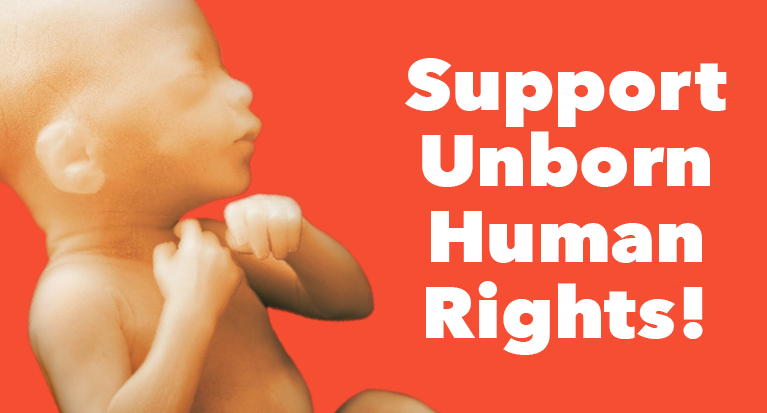By Chris Gast, Right to Life of Michigan Education Coordinator
On January 7, Planned Parenthood, the ACLU and others announced they are working on adding an unlimited abortion amendment to the Michigan Constitution. They hope to collect 425,059 signatures to put this amendment on the ballot in November.
Whether or not they are successful, it’s vitally important for Michiganders to understand what this constitutional change would actually do to them.
Because the amendment is written so broadly, it’s impact on Michigan laws could be profound and extend well beyond abortion. We are still completing a legal analysis of the amendment’s potential effects, but simply read it and some possible effects should be clear.
Important Amendment Sections
○ Creates an unlimited right to anything related to pregnancy, including abortion: “An individual’s right to reproductive freedom shall not be denied, burdened, nor infringed upon unless justified by a compelling state interest achieved by the least restrictive means.”
○ Defines a “compelling state interest” to mean any law has to both be related to the woman’s health and can’t infringe on a woman’s decision in any way. If the law infringes on a woman’s decision-making, it will be struck down: “A state interest is ‘compelling’ only if it is for the limited purpose of protecting the health of an individual seeking care, consistent with accepted clinical standards of practice and evidence-based medicine, and does not infringe on that individual’s autonomous decision-making.”
○ Claims to allow late-term abortion bans after “fetal viability” but creates a broad “mental health” exception that would allow every abortion to continue: “the state may regulate the provision of abortion care after fetal viability, provided that in no circumstance shall the state prohibit an abortion that, in the professional judgment of an attending health care profesional[sic], is medically indicated to protect the life or physical or mental health of the pregnant individual.”
○ Redefines “fetal viability.” Instead of it meaning the point children can survive outside the womb—about 23 weeks—it would mean children that require significant medical care are not considered “viable,” like for example every child in the NICU: “the point in pregnancy when, in the professional judgment of an attending health care professional and based on the particular facts of the case, there is a significant likelihood of the fetus’s sustained survival outside the uterus without the application of extraordinary medical measures.”
○ There’s no limit to who can help women exercise these unlimited rights: “Nor shall the state penalize, prosecute, or otherwise take adverse action against someone for aiding or assisting a pregnant individual in exercising their right to reproductive freedom with their voluntary consent.”
○ The amendment does not specify whether “individual” includes minor children.
Laws That Could Be Affected
When you combine those points together, it becomes clear that any state law or health regulation that addresses abortion or pregnancy in general is in danger. Anything that infringes on a decision made by a woman would be forbidden: not just for abortion but anything related to pregnancy.
That means almost every law related to abortion could be gone if the amendment is successful. Here’s only a partial list of state abortion laws that could be affected:
- Ban on tax-funded abortions
- Partial-Birth Abortion Ban
- Born Alive Infant Protection Act
- Parental consent requirement for children seeking abortions
- Waiting periods and informed consent requirements for women seeking abortions
- Health and safety regulations for abortion facilities
- Michigan’s abortion ban (which was passed in 1846, slightly revised in 1931, and affirmed by Michigan voters in 1972)
Summary
Here is the summary of their amendment that appears on their petitions. If they collect enough signatures, this is also likely to be the summary that appears on voters’ ballots in November:
Constitutional Amendment to: establish new individual right to reproductive freedom, including right to make and carry out all decisions about pregnancy, such as prenatal care, childbirth, postpartum care, contraception, sterilization. abortion. miscarriage management, and infertility; allow state to prohibit abortion after fetal viability unless needed to protect a patient’s life or physical or mental health: forbid state discrimination in enforcement of this right; prohibit prosecution of an individual, or a person helping a pregnant individual, for exercising rights established by this amendment; and invalidate all state laws that conflict with this amendment.
Action
Several Michigan based prolife organizations have joined together to form the Citizens to Support Michigan Women and Children coalition. This coalition is focused on educating Michiganders on the dangers of supporting the anything goes RFFA abortion amendment. The prolife coalition is currently fighting the RFFA’s signature gathering efforts for this petition. To find out more information, please visit the coalition website supportmiwomenandchildre.org to sign up for weekly email updates, volunteer, or access resources. The coalition Facebook and Twitter pages are also great sources of information.
